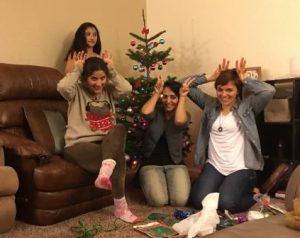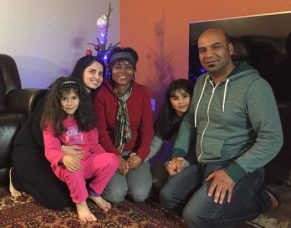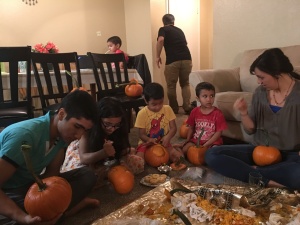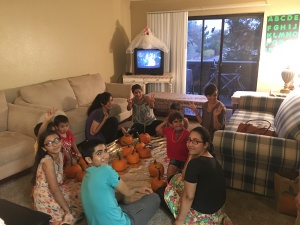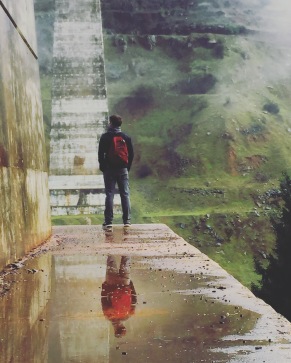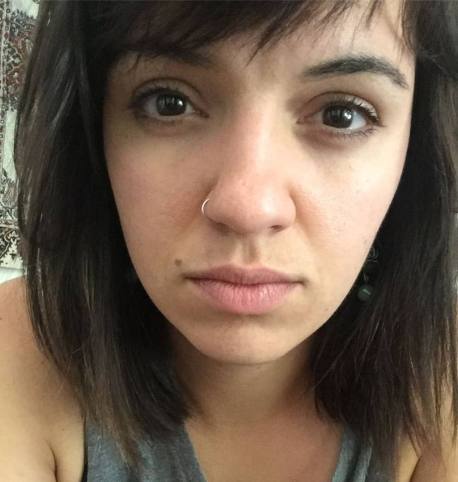“The people here are as hard as the rock that they live on”, said one local expatriate who has lived and taught here for a number of years.

Light-hearted Upon Initial Arrival at Malta Airport
I disembarked on this European island and country on Friday, March 9th to become as exposed to the refugee crisis as one could effectively become during a short stint on European soil. Five weeks has passed and I have not truly engaged with a single, native Maltese person, with the exception of Father Mintoff, the resident Friar and founder of Peace Lab, the NGO I have been residing at.
From randomly-made friends to purposefully-met advocates, social workers, students, NGO staff, and ministers, nearly everyone I have connected with is the product of a different soil. And it appears we all hail this testimony: Malta is not an easy place. I have grasped a tiny bit of its history and culture to sort of begin to see why, but the reasons run deep and regardless of the “why”, this is simply how it is here. It appears, though saturated with working, resident expatriates, the island’s vibe is hard to change.
Given, five weeks simply is not adequate time, nor does it provide proper mindset, to build community, develop empathy, and put down roots. So as I give my observations, I ask you to please read them with such in mind. Honesty, not pointed negativity, is what I can offer.
The hardship of establishing connection or feeling welcomed was the first thing I noticed, and I am walking around in white skin and dark hair and eyes, maybe not looking Maltese, but generally like a Southern European. The vast majority of the migrants on this island are from Africa. The ground they stand on here has to be significantly harder than I have personally experienced, short-term.

Valleta’s Streets. Capital City and Major Tourist Destination

The more country-like and industrial area of Hal Far, where I lived.
There was one particular moment where the weight of external appearance became particularly evident to me. I met a prominent man, originally from Ghana, who lives and works here in many capacities: attorney, educator, founder of grassroots NGO, FSM (Foundation for Shelter and Support to Migrants). Dr. Ahmed Bugri is also a pastor and I met him at Sunday morning worship. As an illustration in his sermon, he shared a story from the past week of his treatment by a local man who cut him in line at the pharmacy. Ahmed addresses the man with an “excuse me sir, but I was here first” sort of line. The man turns and apparently says, “So what?”, to which Ahmed responds, “So I was waiting here and I will be served first”. Now, I ask you to imagine yourself in this space. Most of those gathered for worship are migrants from various countries in Africa or Asia. I am one of maybe three or four Europeans/North Americans in this modest-sized room. Ahmed tells us, the congregation, the man’s response to him. He begins: “The man replied to me, ‘If you don’t like it..’”; Instantly, nearly everyone, without prompting, chimes in and speaks the rest of his sentence with him: “…go back to your country.” If you don’t like it, go back to your country. The moment gripped me. Everyone in that room knew those words so well. External appearance, completely regardless of one’s status or contribution to the economy, society, or wellbeing of the country, trumps all else.
Ahmed continued on to tell of his response to the man in the native Maltese language saying that this was his country and he had lived here for thirty years. Quickly noting that his mild, verbal retribution was no way to ultimately bring about justice and seek peace. As a woman, in Malta, I have never felt so objectified. Not threatened or unsafe, per se, but I’ve never before experienced the feeling of being watched and the need to be on guard as I walk down the street. No matter where I went, men of all cultures have shamelessly pointed and stared. One dude even had the audacity to literally step right in front of me as I was briskly walking and say “ooh, sexy”. I got shocked, turned, and slugged the guy in the arm. I have never hit a human being out of angry reaction. He chuckled; my initial thought was I should have punched his face. But, like Ahmed, I also quickly remembered that retaliation could literally solve nothing.
Living in Malta has brought about some deeper sorrows and pains I’ve not experienced before, and, many times, I have felt sheer helplessness within them. This morning, I decided to sit outside and shove my bare feet into the dirt, in remembrance of how I am just a teeny tiny piece of this earth and my life is, all in all, so insignificant.
This song, Have Mercy on Me, was produced for a special project called The Porter’s Gate. The project’s songs resound of some less-than-glamorous truths. I couldn’t help but sing it out loud as I wiggled my toes in that dirt. To consistently respond actively and rightfully to injustice with a merciful posture, is the very paradox of who Jesus is and all he modeled in the flesh while on earth.
REFRAIN:
Let Your mercy flow through us, Your mercy, Your mercy. (2x)
VERSE 2:
The beauty of the Lord is the suff’ring of the Lord,
is Christ upon a tree, stripped of dignity.
The glory of the Lord is the mercy of the Lord, gives life for us to see a new humanity:
BRIDGE 1:
When they see us, may they see Your mercy, Your mercy.
When they know us, may they know Your mercy, Your mercy.
Listen and read all the lyrics here:
https://theportersgate.bandcamp.com/track/have-mercy-on-me-feat-david-gungor
Many days, in this world, it feels like there is no mercy.

How It Feels Sometimes, Honestly..
<> <> <>
Since 2014, I have been working with, living amongst and building friends
hips with people who have been resettled in Sacramento, California through refugee resettlement programs. Over the years, I have gained some knowledge about the refugee crisis through different working and living capacities—some through reading, self-education and professional conferences, other knowledge gained through personal insights and stories that were eventually shared with me within the contexts of safe friendships with those who had been refugees.
While I taught about the crisis by way of numbers, narratives, and simulations, I now realize how very relative the impact of knowledge was for me, when I was not living in the land where the crisis itself is occurring.
Though I have not received the kind of exposure and connections I was anticipating during my short five weeks in Malta, I have managed to meet a handful of the very persons who left home on a whim, traveled desserts and over land borders by way of smugglers, and paid some fine fees to be piled into a boat with so many others who couldn’t even swim and knew their lives were greatly at stake. This is how they found themselves in Malta.
Some began their new lives in Europe by spending months in a detention centre. Most, here in Malta, can find manage to find work and some sort of shelter, but remain in survival mode. Their PTSD (Post-Traumatic Stress Disorder) is very evident, limiting their brain’s capacity to even grasp a new language. This was actually discussed openly by a few students who I met in the context of ESL class. As an exercise to practice conversation, one day, we focused on story-telling. While I had in mind a short story or recollection from one’s day, some insisted to tell the story of their lives since they left their home soil. With very, very limited English, they laid out the timeline with whatever they could recall. At the point of one student’s story where he, like the others, travled from North Africa across the Meditteranean Sea, another student turned and interrupted, asking:
“How many people died on your boat?”…
“Mmm… Uhh… ten I think?”…
“Oh, only one on mine”.
And that’s how casual and merciless the tragedy of the refugee crisis has been.
<> <> <>
Less than 1% of the world’s displaced peoples will ever be resettled in a third country. I had been interacting with that less than 1% for the past 3 and half years. Now, I was meeting a few individuals who represented the other 99%.
One young woman I met in person after watching a screening of her self-filmed journey from Syria to Austria.

Rania and accompanying journalist taking Q&A at the film screening at Sudan Club in Hamrun, Malta
Having eventually found asylum in Austria, She has the bravery to travel around Europe, re-watch her scary journey at film screenings everywhere, and answer to open Q&A sessions to any sort of audience. The content threw me for a shock. It is unnerving. I highly encourage you to expose yourself with this 22-minute documentary:
Escape from Syria: Rania’s Odyssey: https://www.youtube.com/watch?v=EDHwt-ooAi4
Malta will be what is is, but the general percentage of people who actually care and see the value in helping, loving, and befriending the world’s displaced, seems to be small no matter what country. The majority of the Western world appears is anti-immigrant or simply indifferent. After all, if we aren’t the ones at risk, why should we care?

Artwork in Valleta. Who is really listening?
Personally, I cannot say that this time here has been encouraging. I did not expect it to be, but I also did not expect it to be so hard—both to objectively observe and to feel on a personal level. It has only opened my eyes to why we use the word “crisis”. As I prepare to shift to a TEFL-certification program in Greece and contemplate where I’ll find myself next in the world, I find endless humanitarian and education-related work opportunities nearly everywhere, because displacement is happening, and has been happening for centuries.
Last Saturday, April 7th, marked the 24 year anniversary of the beginning of the Rwanda genocide in 1994, where nearly one million people were killed within 100 days. That is one world-renown genocide that’s occurred within my life time and of which I’ve visited memorials in the country, many containing the stomach-turning site of the endless bones of those massacred.
Because of world war, civil war, famine, political upheaval, genocide, etc., displacement has always been and will continue to be a crisis in our world. We must acknowledge it and do something about it. There is not instant resolution, but for goodness sake, let’s start with some additional mercy.

Saying goodbye to Peace Lab and Father Dionysius Mintoff.



 events are actually discoveries of this paradoxical, counterintuitive kingdom of God that I kept finding were m.i.a. in conventional Christianity. Taught frequently, conceived occasionally, lived out rarely. I was discovering Jesus in places where He said I would find Him, but religion didn’t lead me to. How could I be real and raw in that? Partners want progress. Unlearning doesn’t look very progressive to most.
events are actually discoveries of this paradoxical, counterintuitive kingdom of God that I kept finding were m.i.a. in conventional Christianity. Taught frequently, conceived occasionally, lived out rarely. I was discovering Jesus in places where He said I would find Him, but religion didn’t lead me to. How could I be real and raw in that? Partners want progress. Unlearning doesn’t look very progressive to most.

 encouraging newly-arrived friends to put down new roots is to share life with them.
encouraging newly-arrived friends to put down new roots is to share life with them.





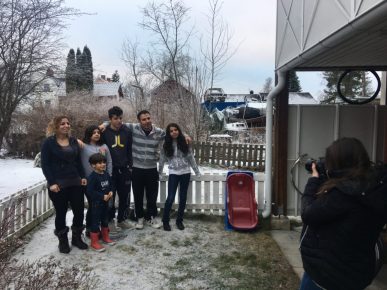
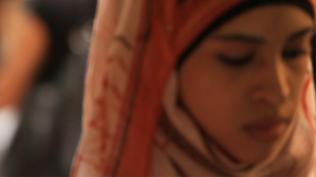 will likely never be able to personally relate to what they’ve been through and are going through. Their stories from back home can be hard on the open ears and even more painful to the soft heart. Many of our refugee neighbors are willing to share their stories from a distant country, but not all are eagerly talking about the injustices facing them right here.
will likely never be able to personally relate to what they’ve been through and are going through. Their stories from back home can be hard on the open ears and even more painful to the soft heart. Many of our refugee neighbors are willing to share their stories from a distant country, but not all are eagerly talking about the injustices facing them right here.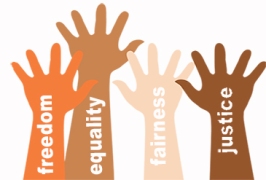 Beside considering the consequences of your choices for our own sake, perhaps we also ought to consider Jesus’ verdict on the matter. He said that our treatment of the widow, the orphan, the shelterless or the immigrant parallels our treatment of Him. What we do for them, we do for Him. When we neglect them, mistreat them, and ridicule them, we neglect Jesus, mistreat Jesus, and ridicule Jesus. (Matt. 25:27-46)
Beside considering the consequences of your choices for our own sake, perhaps we also ought to consider Jesus’ verdict on the matter. He said that our treatment of the widow, the orphan, the shelterless or the immigrant parallels our treatment of Him. What we do for them, we do for Him. When we neglect them, mistreat them, and ridicule them, we neglect Jesus, mistreat Jesus, and ridicule Jesus. (Matt. 25:27-46)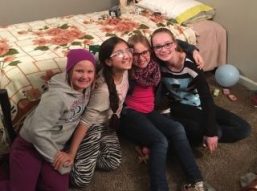 already had a tree, but was so excited for the opportunity to host guests, that the two families came together anyway. Though the language barrier was evident, the families enjoyed tea and fruit together and asked simple questions of each other. Soon enough, the girls became friends with the family’s daughter and went off to play as Ramin, the host father, immediately asked Kay and Kevin if he could tell them his story with the help of a translating friend. Following Ramin’s heart-felt story of recovery from addiction and then journey to America, he and his wife Elika led a time of singing
already had a tree, but was so excited for the opportunity to host guests, that the two families came together anyway. Though the language barrier was evident, the families enjoyed tea and fruit together and asked simple questions of each other. Soon enough, the girls became friends with the family’s daughter and went off to play as Ramin, the host father, immediately asked Kay and Kevin if he could tell them his story with the help of a translating friend. Following Ramin’s heart-felt story of recovery from addiction and then journey to America, he and his wife Elika led a time of singing 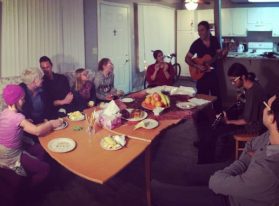 in their native tongue and playing guitar. Ramin and his son shared their wonderful skills of guitar playing with their new friends as if they had known each other for years. Kay and Kevin expressed their joy and gratitude with words and smiles and told Ramin and Elika how they will never forget this night. It was evident that they were so welcomed in the newer family’s home and that a very mutual blessing was taking place. Their fellowship lasted several hours as they eventually ate a meal together. Upon departure, Kay and Kevin invited Elika and Ramin’s family over to their home the following week. They wholeheartedly accepted.
in their native tongue and playing guitar. Ramin and his son shared their wonderful skills of guitar playing with their new friends as if they had known each other for years. Kay and Kevin expressed their joy and gratitude with words and smiles and told Ramin and Elika how they will never forget this night. It was evident that they were so welcomed in the newer family’s home and that a very mutual blessing was taking place. Their fellowship lasted several hours as they eventually ate a meal together. Upon departure, Kay and Kevin invited Elika and Ramin’s family over to their home the following week. They wholeheartedly accepted.